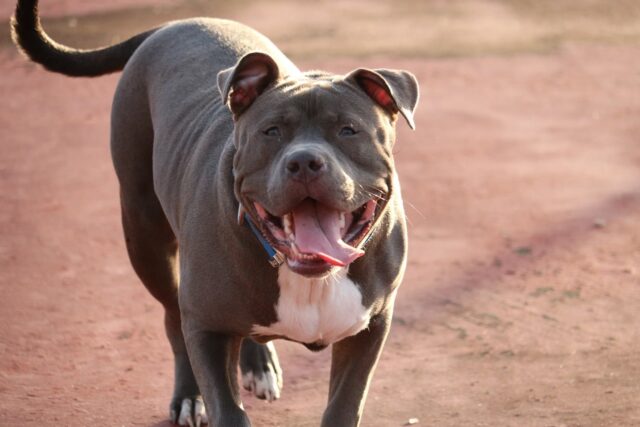 Shutterstock
Shutterstock
The problem of dogs ending up in shelters is multifaceted, driven by overbreeding, owner surrenders, and shifts in life circumstances. While any breed can find itself in a shelter, certain breeds are more frequently seen due to their popularity, distinct traits, or widespread misconceptions about their behavior. These breeds continue to dominate shelter populations, underscoring the ongoing need for responsible pet ownership and breed-specific education to address these recurring issues and reduce the number of dogs in shelters.
Cocker Spaniel
 Shutterstock
Shutterstock
Cocker Spaniels are affectionate and playful dogs known for their beautiful coats and friendly disposition. Despite their popularity as family pets, they are often found in shelters due to grooming needs, health issues, and behavioral challenges. Cocker Spaniels can be prone to ear infections and require regular grooming, which can be overwhelming for some owners. Additionally, without proper training and socialization, they can develop behavioral issues such as separation anxiety or aggression. These factors and their popularity lead to many Cocker Spaniels ending up in shelters.
Chihuahua
 Shutterstock
Shutterstock
Chihuahuas are small dogs with big personalities, often seen in shelters due to overbreeding and high energy levels. While Chihuahuas can make excellent companions, they are known for being yappy and sometimes aggressive, especially if not properly socialized. Their small size can also lead to misunderstandings about their care needs, resulting in behavioral problems. Overbreeding, particularly by irresponsible breeders looking to profit from their popularity, has led to many Chihuahuas ending up in shelters.
Beagle
 Shutterstock
Shutterstock
Beagles are friendly and curious dogs known for their excellent sense of smell and energetic nature. Despite their charm, Beagles are commonly found in shelters due to their high energy levels and tendency to follow their noses, often leading to escape attempts. Beagles require a lot of exercise and mental stimulation, which can be challenging for some owners to provide. Additionally, their vocal nature and strong prey drive can make them difficult to manage, leading to owner surrender.
Boxer
 Shutterstock
Shutterstock
Boxers are energetic, playful dogs known for their boundless enthusiasm and love for family. Despite their endearing qualities, they are often found in shelters due to their high energy levels and need for consistent training and socialization. Boxers are strong and boisterous, which can be overwhelming for inexperienced owners. They also have a strong protective instinct, which can lead to behavioral issues if not properly managed. These factors contribute to the number of Boxers in shelters.
Dachshund
 Shutterstock
Shutterstock
Dachshunds are charming but often misunderstood with their long bodies and short legs. They are frequently found in shelters due to health issues related to their unique build, such as back problems, and behavioral challenges like stubbornness and a strong prey drive. Dachshunds can also be prone to separation anxiety and may not get along well with young children. These factors and their popularity led to many Dachshunds being surrendered to shelters.
German Shepherd
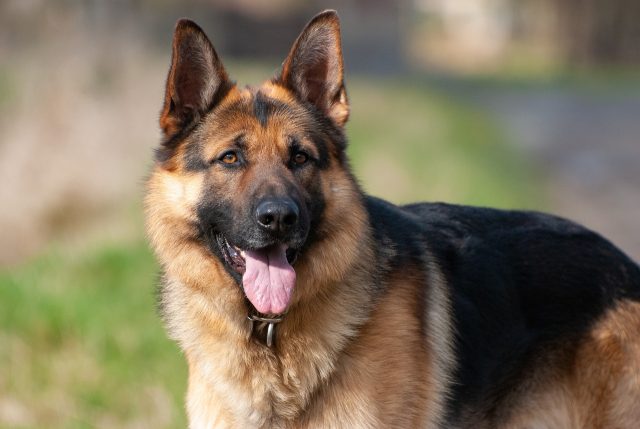 Shutterstock
Shutterstock
German Shepherds are intelligent and versatile dogs, often used in police and military work. However, they are also among the breeds most commonly found in shelters. This is often due to their high energy levels, need for mental stimulation, and protective instincts, which can lead to behavioral problems if not properly managed. German Shepherds require experienced owners who can provide consistent training and exercise. Unfortunately, many owners underestimate these needs, leading to abandonment.
Rottweiler
 Shutterstuck
Shutterstuck
Rottweilers are strong, protective dogs that require experienced handling. They are often found in shelters due to misconceptions about their temperament and the responsibilities of owning such a powerful breed. Rottweilers are loyal and can be excellent family pets, but they need consistent training and socialization to ensure they are well-behaved. Many end up in shelters due to a lack of understanding of their needs or because owners cannot handle their strength and protective nature.
American Bulldog
 Shutterstock
Shutterstock
American Bulldogs are strong, muscular dogs known for their loyalty and protective instincts. Despite their affectionate nature, they are often found in shelters due to their size and strength, which can be intimidating for some owners. American Bulldogs require consistent training and socialization from a young age to prevent behavioral issues. Additionally, their strong prey drive and tendency to be protective can make them challenging for inexperienced owners, increasing shelter numbers.
Shih Tzu
 Shutterstock
Shutterstock
Shih Tzus are small, affectionate dogs with a distinctive coat that requires regular grooming. They are commonly found in shelters due to grooming needs and health issues, such as respiratory problems and eye conditions. Shih Tzus can also be prone to behavioral issues like stubbornness and separation anxiety if not properly trained and socialized. These factors, combined with their popularity, lead to many Shih Tzus being surrendered to shelters when owners cannot meet their needs.
Labrador Retriever
 Shutterstock
Shutterstock
Labrador Retrievers are one of the most popular breeds in the world, known for their friendly and outgoing nature. Despite their popularity, they are frequently found in shelters due to their high energy levels and need for exercise. Labs can become destructive if they are not properly exercised and mentally stimulated, leading to behavioral issues. Additionally, some owners may underestimate the responsibilities of owning a large, active dog, leading to abandonment.
Pit Bull
 Shutterstock
Shutterstock
Pit Bulls are often misunderstood and unfairly stigmatized, leading to their overrepresentation in shelters. Despite their reputation, many Pit Bulls are affectionate and loyal dogs. However, they require experienced owners who can provide proper training and socialization. Pit Bulls are often surrendered to shelters due to behavioral issues, breed restrictions, or owners’ inability to handle their strength. The negative stigma surrounding the breed also contributes to its high numbers in shelters.
Poodle
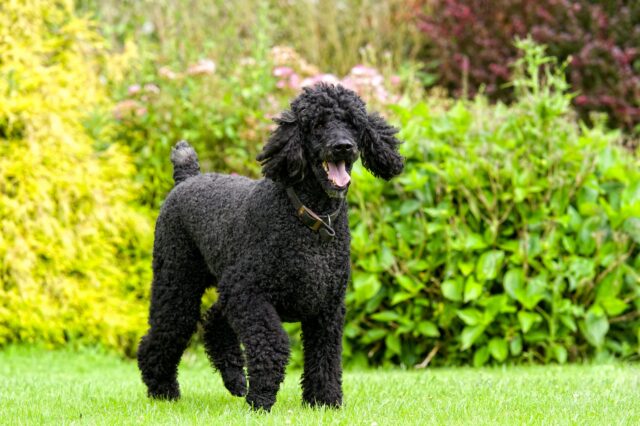 Shutterstock
Shutterstock
Poodles, whether standard, miniature, or toy, are intelligent and energetic dogs known for their curly coats. They are frequently found in shelters due to grooming needs and high energy levels. Poodles require regular grooming to prevent matting and health issues, which can be challenging for some owners. Additionally, their intelligence and need for mental stimulation mean they require consistent training and exercise. Many Poodles end up in shelters when owners cannot meet these needs.
Australian Shepherd
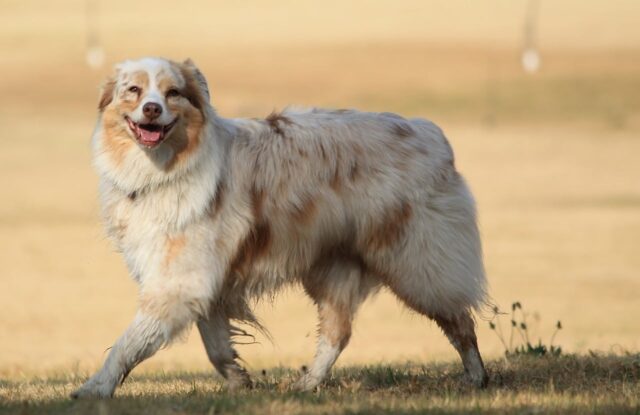 Shutterstock
Shutterstock
Australian Shepherds are highly intelligent and energetic dogs that require a lot of mental and physical stimulation. They are often found in shelters because their high energy levels and herding instincts can be overwhelming for some owners. Australian Shepherds need a job, whether it’s herding, agility, or other activities that challenge them. They can become bored and destructive without proper exercise and mental stimulation, leading to owner surrender.
Siberian Husky
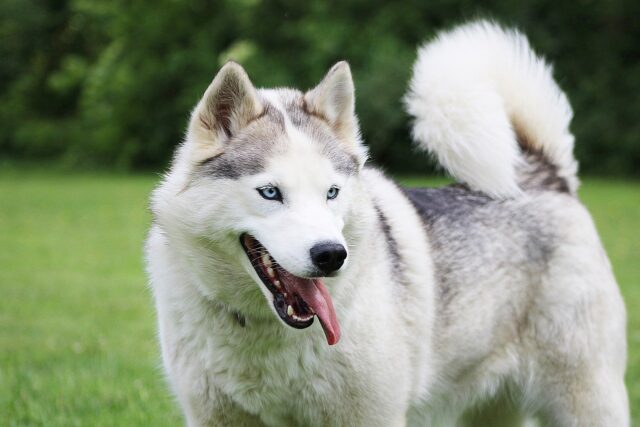 Shutterstock
Shutterstock
Siberian Huskies are known for their striking appearance and high energy levels. They are often found in shelters due to their strong prey drive, tendency to escape, and need for extensive exercise. Huskies are independent and stubborn, making them challenging for inexperienced owners. They require consistent training, socialization, and physical activity to thrive. Many end up in shelters because owners underestimate the time and effort needed to care for such an active and intelligent breed.
The Breeds Most Often Seen in Shelters
 Shutterstock
Shutterstock
The prevalence of these breeds in shelters highlights the importance of responsible pet ownership and the need for prospective owners to thoroughly research and understand a breed’s needs before bringing a dog into their home. Many dogs are surrendered due to behavioral issues, health concerns, or lifestyle mismatches. Raising awareness about the specific needs of different breeds and encouraging responsible breeding and adoption practices can help reduce the number of dogs in shelters and ensure that more pets find loving, permanent homes.
 Toledo, United States.
Toledo, United States.